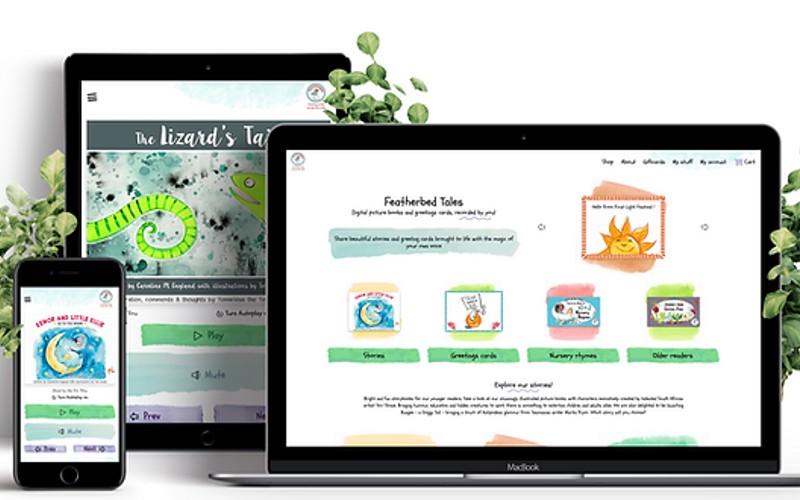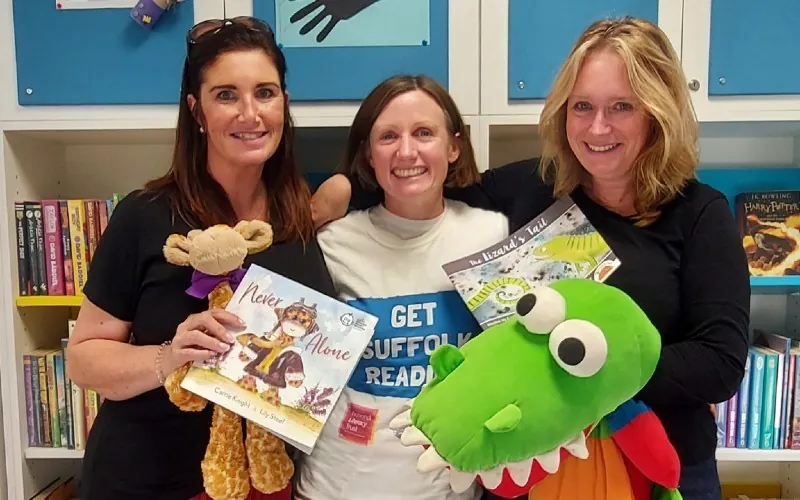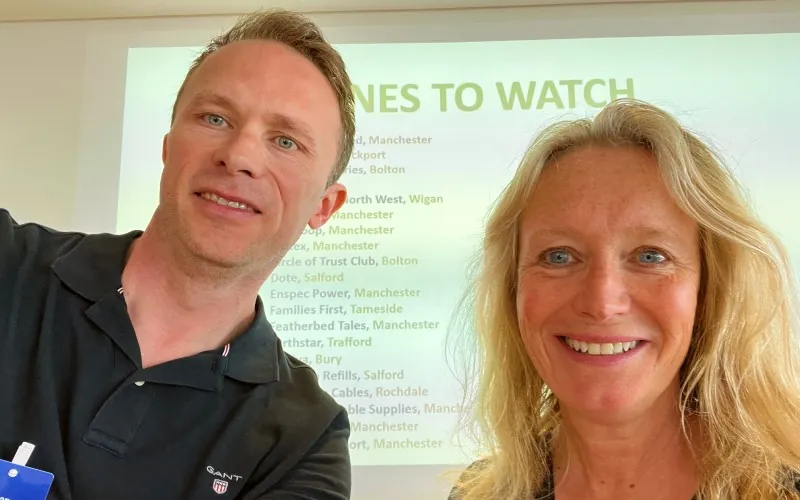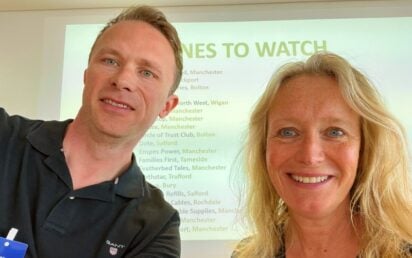A tech entrepreneur is looking to harness the power of voice to help people connect with absent and unwell loved ones.
Caroline M England had enjoyed a successful career in marketing and business development at corporates and social enterprises. However the loss of a close friend in 2016 was to set her on a new path.
“A good friend of mine died from a brain tumor. She left a little boy who was about four,” she tells me at the launch of our GM Rising Stars of Business list. “I realised that he wouldn’t really remember his mum.”
One day she was tidying his bedroom when she came across a photo album. “I opened it and saw a picture of my friend with a big clunky button next to it,” recalls Caroline.
“I pressed it and her voice came out, saying: ‘Hello, I’m your new mummy.’ It was the book that they had made when they adopted him.
“The sound of her voice made the hairs on my neck stand up… it made me realise how powerful the voices are of people you know and love, how they can instantly connect us with someone who isn’t there in a way that probably a photograph on its own just doesn’t.”
A chance encounter with a childhood friend in the Lake District reinforced the notion. “I was swimming Lake Coniston and standing next to another woman who was also in a wetsuit and hat.
“I had no idea who she was, but the instant she spoke, I knew that we’d been friends as teenagers – and all the mad memories from that time came flooding back. They were things that had been hidden away in my brain for literally decades.”
She would go on to found Featherbed Tales, which creates digital picture books and greetings cards, to replicate this “visceral” feeling for others. The startup was ranked fourth on our recent MediaTech 50 ranking.
Featherbed Tales – Digital picture books and greetings cards, recorded by you
“I reached that big birthday with a five at the beginning of it, and I just thought: ‘It’s now or never to do something different.’
“I’ve always written stories… I decided that maybe there was something different here, around combining stories and voice, with a different route to market.”
Initial plans centred around connecting children with absent parents in the armed forces, and also helping reformed prisoners to rebuild relationships with their children and lower their chances of reoffending.
The idea was for a B2B model – for example, working with armed forces associations – but soon after launch a number of city and county library groups asked whether they could offer the books to children to encourage reading.

“We developed an API so that we could work with libraries,” explains Caroline. “We could check their databases for people’s library memberships, and they could then offer our service free of charge at the point of use. So that was our first foot in the water.
“B2C is now part of our offer: in our latest iteration, we’ve incorporated a subscription model for consumers as well as for businesses.”

All of Featherbed Tales’ storybooks come with a standard audio track, voiced by an actor – but users can then make their own recordings and listen back to these.
“Children love hearing their own voices; that process around a child making their own recording and listening back is really, really good in terms of expression, pronunciation, tone of voice, and all of those things are becoming a very core part of education in those early years,” says Caroline.
“It’s the strongest driver for young children of success later in life, pretty much however you determine that.”
The business has worked with the National Literacy Trust in this area: “There’s a real crisis of poor communication at the moment with children, post-pandemic.”

Several use-cases have emerged for the tech, she adds. “It might be that you have English as an additional language: families can sit down together and listen to a story in English and then practise themselves. Or they can also record the story in their own language [and share in the experience with their kids].
“When I heard Rob Burrow on the radio talking about not being able to read a story to his children because he’d lost his voice, we soon began working with the Motor Neurone Disease Association. That enables people to capture their voice while they still have it – so they could make a recording while they’re still able to talk. And then when they’ve lost their voice, that voice is still there, so they could sit down with a storybook and they can still hear it.
“We also work with hospices, so that legacy of creating something for someone long term after you’ve gone… that’s a challenge for us, because that’s a really difficult thing to communicate to people. But there is that opportunity, and we’re just starting to make inroads there.”
Featherbed Tales has just finished development on a tool enabling people to create their own stories following the award of an Innovate UK grant. “It might be a photo album which they add text to with a narrative commentary. It feels like a game-changing moment for us: it changes the offer for our various target markets.”
Featherbed Tales was named a ‘One to Watch’ in our GM Rising of Business list for 2025.
Caroline describes Manchester as a “a place where people really want to help each other” and says many have given time to help her to identify focus and direction.
“Having this sort of recognition makes the most enormous difference,” she says, before signing off with the story of a young boy and his mum.
“This child, Noah, didn’t like books, so his aunt recorded him a story – about a crocodile I think – which was so personal: she added his name and told him to get his snapping arms ready as the crocodile was coming! And now he wants to read that story every night.
“For us, that engagement with reading is such a powerful thing.”

